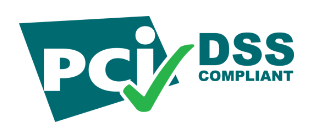Solutions |
Integrations
Make business
processes
smooth with
integrations
From managing business accounts payable and receivables to expense management, integrate your existing business systems to improve efficiency

The EnKash way is
the better way
Switch to EnKash today!
B2B & Utility
Payments
Expense
Management
Employee
R&R
Corporate Card
Management

Businesses had to manually generate invoices for all business-related payments with limited options like cheques and bank transfers. This often leads to delayed reconciliation.


Businesses can integrate their accounting softwares with EnKash for invoice syncing and flexible payment options. It also helps enable automated reconciliation which takes place in real-time.
Enhance business processes
with integrations
Multiple Systems
Integration
Businesses can integrate their existing systems for payments across businesses, managing their employee expenses, business card management, and rewards programs.
Get Started
Real-Time Updates
Integrations enable real-time data exchange between systems, ensuring accurate and updated information.
Get Started
Scalability
With EnKash, integration capabilities can be scaled as and when the business expands.
Get Started
API Integration
Businesses can integrate from a host of APIs as per their requirements ensuring they get the functionality that will enhance their business.
Get Started
Business integrations
made easy
How does it work?

1/3


Decide which service to integrate with your existing system
Got Questions?
Don't worry! Our FAQs section will help you learn about integrations in detail
Which business must opt for integrations?
Businesses of all sizes - small, medium, and large need integrations across different industries. Integrations can be modified to suit business needs like expense management.
Where do businesses require integrations?
Businesses need integrations for managing their accounts payable, receivables, and utility payments, streamlining their expense management, enhancing their card controls & monitoring, and upgrading their rewards and recognition.
Why should businesses consider implementing integrations?
Integrations help bring efficiency to businesses by enabling a seamless flow of information between systems, streamlining processes, and enhancing communication.
What challenges do businesses face during integration implementation?
Businesses may face data compatibility issues, security concerns, and the need for skilled personnel to manage and maintain integrations. EnKash’s API suite & integration assistance help identify these challenges and provide solutions to eliminate them.
How do integrations help businesses save costs?
Using integrations, businesses can automate their manual processes and cut down on their operational expenses. Businesses can also enhance their approval workflows, make payments timely, and manage their cash flow effectively.
 x
xSeeking further understanding of integrations?
Integrations in business help improve overall efficiency by enabling different systems to communicate and share information for operations.
Talk to us

Explore our comprehensive guide




